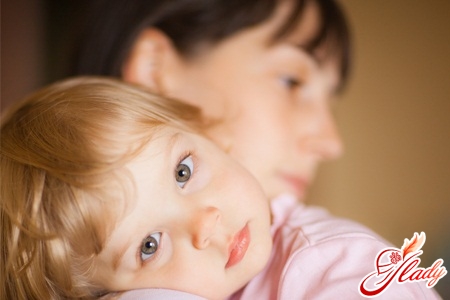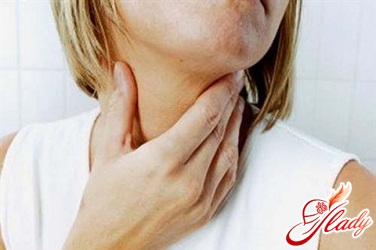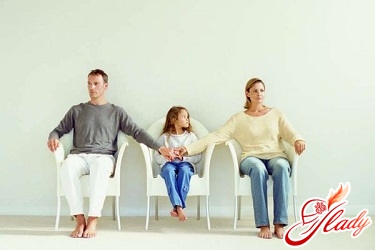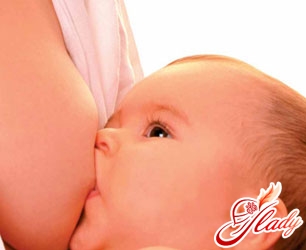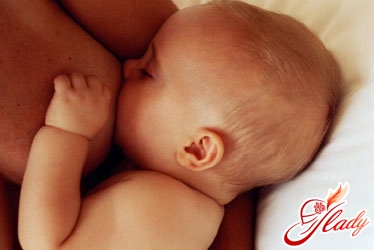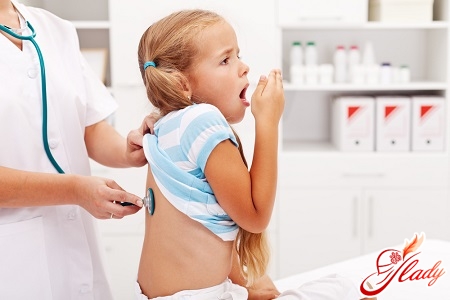
Every year from autumn to spring more than 60%children suffer from various respiratory diseases, and the percentage of those affected increases every year. Among all respiratory diseases, bronchitis ranks second in severity. Treatment of bronchitis in children with modern drugs allows you to completely cure the disease and prevent complications and chronic forms, the main thing is to fully complete an intensive course of treatment.
Danger of bronchitis in children of different ages
Drug treatment of bronchitis is largelydepends on the age of the little patient, as often requires strong drugs. As a rule, bronchitis in children occurs in a mild or acute form, but if you do not pay due attention to the treatment, it is quite possible that the disease will become chronic. Most children suffering from chronic bronchitis are more susceptible to various viral and infectious diseases, as their immune system weakens over time. Bronchitis is quite treatable, but constant monitoring of the child's health is needed to prevent complications and the development of a chronic form of this disease. Sometimes bronchitis in children occurs in a fairly mild form, so parents do not pay much attention to it, not worrying much about it, but in vain, because bronchitis often leads to thinning of the bronchial mucosa and, as a result, to a predisposition to allergic reactions. Bronchitis is considered an acute infectious disease, which, as a rule, develops as a complication after a previously suffered viral disease, for example, flu or herpes. In this case, the body is unable to fight pathogenic bacteria that quickly affect large and small bronchi. It is believed that bronchitis begins with infection of the mucous membrane of the upper respiratory tract, which then spreads to the bronchi, affecting them. The main risk group for bronchitis are children suffering from allergies, asthma or having congenital bronchial deformities, although these days it is not uncommon for children who are not at risk to be affected, since we are still talking about an infectious disease. A number of medications and folk remedies are used to treat this respiratory disease, which are extremely effective. In the case of chronic bronchitis, as a rule, longer complex treatment and quality care are required.
Symptoms and complications of bronchitis
Initially, bronchitis develops as a normala cold with its characteristic runny nose, reddened throat, severe cough without sputum. Then the disease takes on more distinct forms - an increase in body temperature to 38 degrees and above, weakness, loss of appetite. Approximately on the 2-3 day of the disease, dry wheezing in the bronchi and pain in the sternum appear. Another day later, the dry cough is replaced by a wet one, then you can determine the form of bronchitis by the type of mucus secreted. If the mucus is transparent, then there is an acute form of the disease, if it is green with obvious signs of purulent discharge - chronic. With bronchitis, fibrous changes in the walls of the bronchi, compaction of connective tissue and extensive inflammatory processes of the mucous membranes of the organ with a transition to other tissues are observed, which, in fact, causes the symptoms. Acute bronchitis, with proper treatment, disappears in 3-4 days, turning into a mild form, complete recovery occurs in 2 weeks, while chronic bronchitis, accompanied by relapses and remissions, can last for years. The main concerns are possible complications of bronchitis, since this disease can develop into a severe form, causing fibrous changes in bronchial tissue, and is accompanied by severe shortness of breath and breathing problems. Severe forms of bronchitis become the basis for serious lung damage and the cause of the development of chronic obstructive pulmonary disease. To identify bronchitis, data are obtained from X-ray examination, external examination and listening to wheezing, and also based on blood tests for the presence of inflammatory processes in the body. It is immediately worth clarifying that self-medication is unacceptable in the case of bronchitis, and treatment of the child must be prescribed by a doctor who sees the symptoms and the full clinical picture. Some folk remedies can be used by parents to strengthen the baby's immune system, restore and strengthen health, but in no case as the main treatment. This will only aggravate the problem, bringing the disease to a chronic form, and the child will get sick 2-3 times a year, and sometimes more often.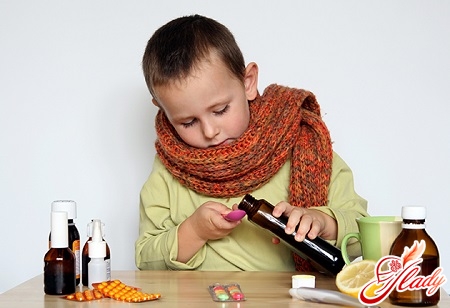
Treatment of bronchitis in a child under 3 years old
Typically, in children under 3 years of ageBronchitis develops as a complication after a cold or due to congenital bronchial obstruction, and in the second case, even a child who has not left the maternity hospital can get sick. It is worth noting right away that at a temperature above 38 degrees in children of this age, hospitalization is required, and home treatment is highly undesirable, since the child must be constantly monitored due to the possibility of a sudden deterioration in the condition. Most children of this age are immediately diagnosed with obstructive bronchitis, since shortness of breath is observed. A manifestation of shortness of breath in children under one year is considered to be a respiratory rate of more than 40-60 breaths per minute. Based on the diagnosis, the following range of drugs is prescribed: antibiotics (intramuscularly or in tablets depending on the baby's condition), a drug to get rid of shortness of breath, an antipyretic, drugs to restore intestinal microflora, inhalations against the development of obstruction, nasal drops, cough tablets or syrups. Medicines must be prescribed by a doctor and the treatment must be adjusted if the drugs are ineffective. The most commonly prescribed antibiotics for babies are: Sumamed, Cefuraxin, Zinnat and similar drugs. To eliminate shortness of breath, as a rule, a solution of Euphyllin is prescribed. The choice of cough medicines is extremely wide, so both tablets and syrups can be prescribed, for example, Lazolvan, Ambrolan and so on. From the first day of using antibiotics, children under 3 years old also need to be given drugs that normalize the intestinal microflora, usually drugs such as Lacidophilus or Bifidobacterium are prescribed. Other drugs are aimed at treating symptoms, for example, antipyretics and nasal drops are selected strictly individually depending on the child's reaction to the selected drug. Depending on the reaction of pathogenic microflora to antibiotics, other drugs that are more potent can be prescribed, so it is very important that a qualified doctor treats the child.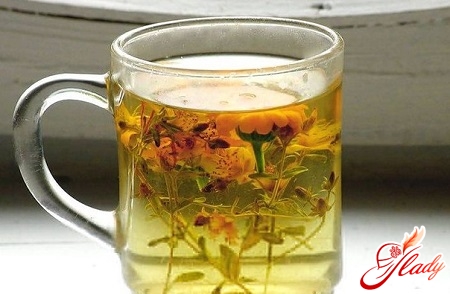
Terraria and medications for the treatment of bronchitis in children older than 3 years
Acute and mild forms of bronchitis are excellentare amenable to drug treatment, but it is still very important that a qualified pediatrician is involved in the selection of drugs. Children over 3 years old can be treated at home and are subject to hospitalization only in severe cases of the disease. Medicines are selected in accordance with the severity of the existing symptoms and the age characteristics of the patient. For effective treatment of inflammatory processes in the bronchi, antibiotics, mucoactive and expectorant drugs, inhalation bronchodilators, as well as drugs that relieve individual symptoms, for example, antipyretics, are prescribed. Two types of antibiotics are most often used to treat bronchitis - penicillin group drugs and macrolides, which are extremely effective in the fight against infections that cause inflammation. Many parents believe that prescribing antibiotics is too serious a measure, but this is not true, because the rapid development of a pathogenic environment can lead to the development of a more serious respiratory disease - pneumonia. The duration of antibiotic treatment for acute forms of bronchitis is at least 7-14 days. In mild cases of the disease - no more than 7 days. Expectorants are used according to the instructions or prescriptions of the attending physician. In cases where severe swelling of the respiratory tract is observed, diuretics may be prescribed, including Furosemide to remove excess fluid from the swollen areas. In addition, the sick child is prescribed complete rest and bed rest, since excessive activity during the illness can lead to its exacerbation or transition to a chronic form. Antipyretics are taken according to schedule, after normalization of body temperature, the use of mustard plasters and hot baths based on mustard is recommended. Frequent consumption of hot drinks is encouraged. The use of drugs must be coordinated by a doctor based on their effectiveness. Correct drug treatment of acute bronchitis allows you to completely cure a child in 2-3 weeks. A child is considered completely healthy from bronchitis when even minor symptoms disappear, and in this case, treatment should not be stopped after the slightest improvement in the condition.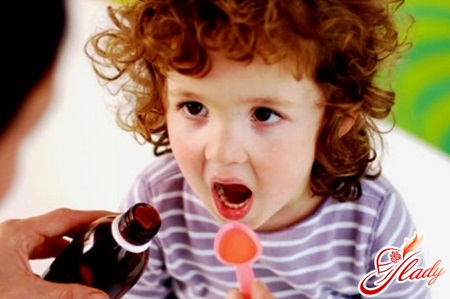
Treatment of chronic bronchitis in children older than 3 years
Treatment of chronic bronchitis in children -This is a rather complicated process aimed not only at treating a systematically manifested disease, but also at improving the general immunological condition of the child. As a rule, children with chronic bronchitis get sick several times more often, and the child's morbidity can be caused not only by a change in the weather, but also by moving to another climate zone, for example, a trip to the sea. This state of affairs is really depressing, since the child grows up with weakened health, and the situation will worsen every year, because chronic bronchitis creates fertile ground for the development of excessive sensitivity to allergens. As a rule, during an exacerbation of chronic bronchitis, the disease always occurs in an acute or severe form, and sometimes even with severe attacks of suffocation. During the activation phase of the disease, treatment of children is aimed at eliminating the inflammatory process and its consequences and is not much different from the treatment of ordinary acute bronchitis, but, as a rule, recovery occurs much later, in 3-4 weeks. Completely curing chronic bronchitis in a child is a very difficult task. The thing is that even after symptomatic treatment and the disappearance of the inflammatory process in the bronchi, pathogenic microflora still remains in the body, which makes itself known when conditions unfavorable for the child's body occur. The risk of actual morbidity can be reduced by constantly monitoring the child's health, as well as therapy aimed at improving health. Such therapy involves following a daily routine, breathing and physical exercises, chest massages, hardening, an active lifestyle, including frequent trips to nature or recreation in the village or in children's health camps. The inclusion of vitamin supplements in the diet is welcomed.
Folk remedies in the fight against bronchitis
Folk remedies can be used inas an additional means to traditional drug therapy, but you should not rely solely on the power of herbs and refuse antibiotics and modern drugs, as this can lead to a worsening of the disease. Some folk remedies really have a positive effect, having a general strengthening and tonic effect on the body, so their use in the treatment of a child is still welcomed. If the child's body temperature is normal, you can use warm soothing baths before bedtime with the addition of an extract or decoction of chamomile, sage, St. John's wort, mint and essential oils. Such baths act as a light inhalation and help speed up the recovery process. In addition, at normal body temperature or after taking antipyretics, it is recommended to do an inhalation on potatoes with soda, this helps to liquefy the mucus accumulated in the bronchi and its rapid removal. Separately, it is worth mentioning the collection of medicinal herbs used to prepare a warm drink for the patient. To prepare herbal tea for children over 3 years old, you can use a ready-made breast collection, which can be purchased at any pharmacy. In addition, it is recommended to drink mint-chamomile tea or tea prepared on the basis of a combination of rose hips and St. John's wort. Raspberry jam and honey can be added to warm drinks, but you must remember that honey should only be added to warm water and in no case to boiling water, as this will significantly reduce its beneficial properties. In addition, you can prepare warm milk with honey, but again, honey should be put in slightly warm milk, this will preserve its properties. Warm milk with honey is an excellent expectorant, and the taste of such a drink is pleasant, which is especially useful when it comes to treating a child. It is better to agree on the use of herbal collections with your doctor.
Prevention of bronchitis in children
The problem of bronchitis prevention in childrenof kindergarten and school age is extremely acute, since each child is in close contact with their peers for a long period of time, and their infection with pathogenic microflora cannot be ruled out. The main preventive measure is to avoid visiting crowded places during the peak of respiratory diseases. It is very important to teach the child hygiene and the need to wash their hands. In order to reduce the risk of a child getting bronchitis, general tonics are recommended, including hardening with a contrast shower and doing physical exercises in the fresh air. To strengthen the immune system, you need to adhere to a proper diet and include foods rich in vitamins in the diet. Particular attention should be paid if the child has a cold, since this disease can easily develop into bronchitis. To prevent this from happening, you need to provide the child with complete rest, bed rest and high-quality treatment with drugs. If a diagnosis of "chronic bronchitis" has been made previously, even a common runny nose can be a cause for concern and special care for the child.




